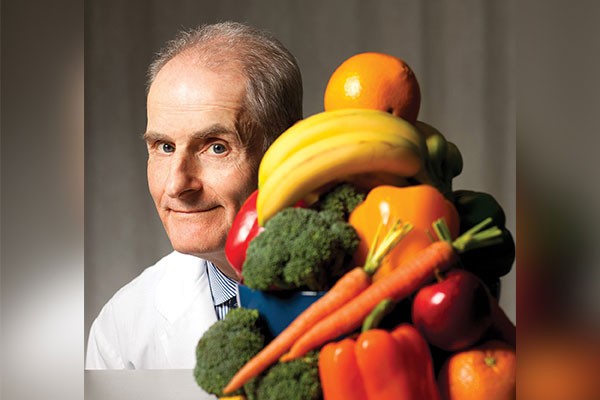When this professor from the University of Toronto published his diet list about foods that have the most impact on blood sugar level in 1981, he probably didn’t anticipate the tsunami wave he got rolling. After this, he had even been awarded the Bloomberg Manulife Prize because of his outstanding commitment to active health. However, this was only the beginning since his studies proved later that people who used to follow a plant-based diet had much lower cholesterol and blood-pressure levels than people whose diet regimen was mainly meat- and diary-based. These people were even much less subject to fall victim to a heart attack or to suffer from cancer – especially colorectal cancer which is probably the most vicious type of cancer since one uses to have hardly any symptoms or feel any pain until it’s too late. Very interestingly, his motivation to campaign for a vegan diet was not only due to its awesome health benefits but much more because of the positive environmental and humanitarian impact. What I loved most about him was his motivational phrase: “It’s easier to follow a healthy diet if you have more reasons to do so.”
“In 1981, a plain-speaking, unassuming scientist at the University of Toronto published with his colleagues a meticulous list that ranked foods according to the effect they had on blood sugar. The goal was to better understand the role of carbohydrates in managing diabetes. But the effect was more far-reaching than perhaps he ever would have imagined.
Dr. David Jenkins’s glycemic index revolutionized the diet industry. His isn’t a household name, but the diets his research inspired certainly are: Atkins, The Zone, South Beach, Sugar Busters and the G.I. Diet, to name a few. Along with laying the scientific groundwork for wildly popular lower-carb diets, Jenkins’s work on international committees has influenced dietary guidelines issued by the World Health Organization, the U.S. National Academy of Sciences and national diabetes associations around the world. His research demonstrated the statin-like cholesterol-lowering power of what he coined the “Portfolio Diet” and he helped create the President’s Choice Blue Menu line of healthier food products in the hopes of reaching even more consumers.
It’s fair to say Jenkins has had a profound influence on how and what we eat. And now he wants us to radically rethink our diets once again.
This time, though, he may meet a little more resistance: If it were up to Jenkins, he would have us all give up meat, fish and dairy and embrace veganism. And not just for our individual health.
Earlier this year, Jenkins – a Canada Research Chair in nutrition, metabolism and vascular biology, a professor in the department of nutritional sciences, faculty of medicine at the University of Toronto, and scientist at the Li Ka Shing Knowledge Institute of St. Michael’s Hospital – became the first Canadian recipient of the Bloomberg Manulife Prize for the Promotion of Active Health. In a celebratory public conversation about his research, he shared with the crowd that he follows a vegan diet.
A properly planned plant-based diet – one that avoids all animal products, including meat, poultry, fish, eggs and dairy – is incredibly good for your health.
Studies have shown plant-based eaters are thinner and have lower cholesterol and blood-pressure levels, a reduced risk of coronary heart disease, Type 2 diabetes and lower cancer rates – especially colorectal cancer.
Foods such as beans and lentils, nuts, whole grains, fruits and vegetables offer a wealth of nutrients, fibre and phytochemicals that have favourable health effects. And vegan diets are usually higher in fibre, magnesium, folate, vitamins C and E, iron and phytochemicals, while tending to be lower in calories, saturated fat and cholesterol.
But the individual health benefits are just the beginning. Though he’s well aware of the nutritional advantages, it was environmental and humanitarian concerns that pushed Jenkins to drop meat, eggs, fish and dairy from his diet.”
Read the full article at The Globe And Mail!
Image Source: University of Toronto







